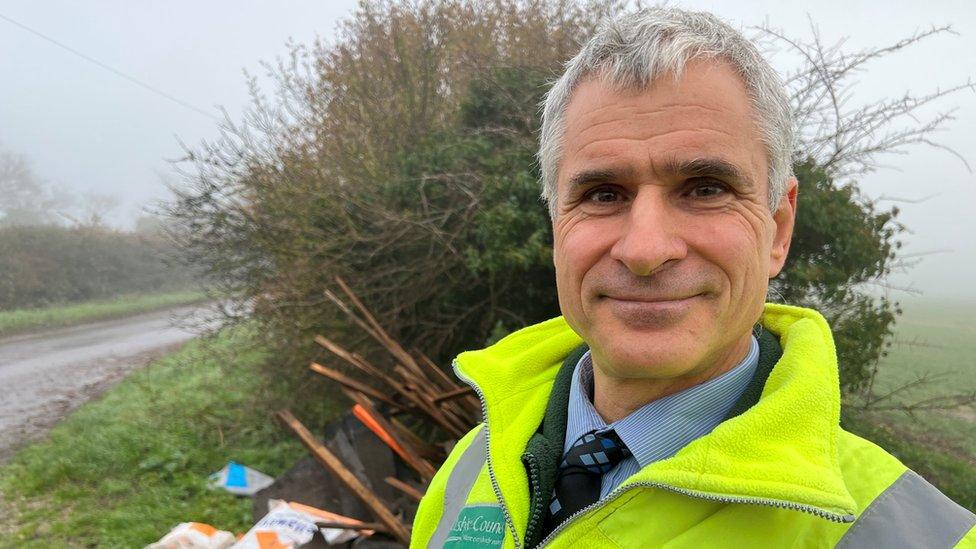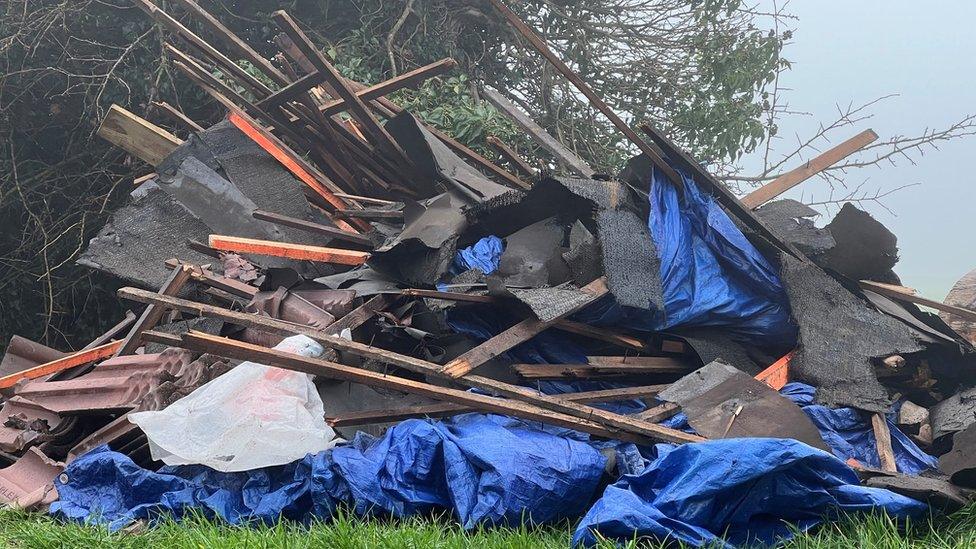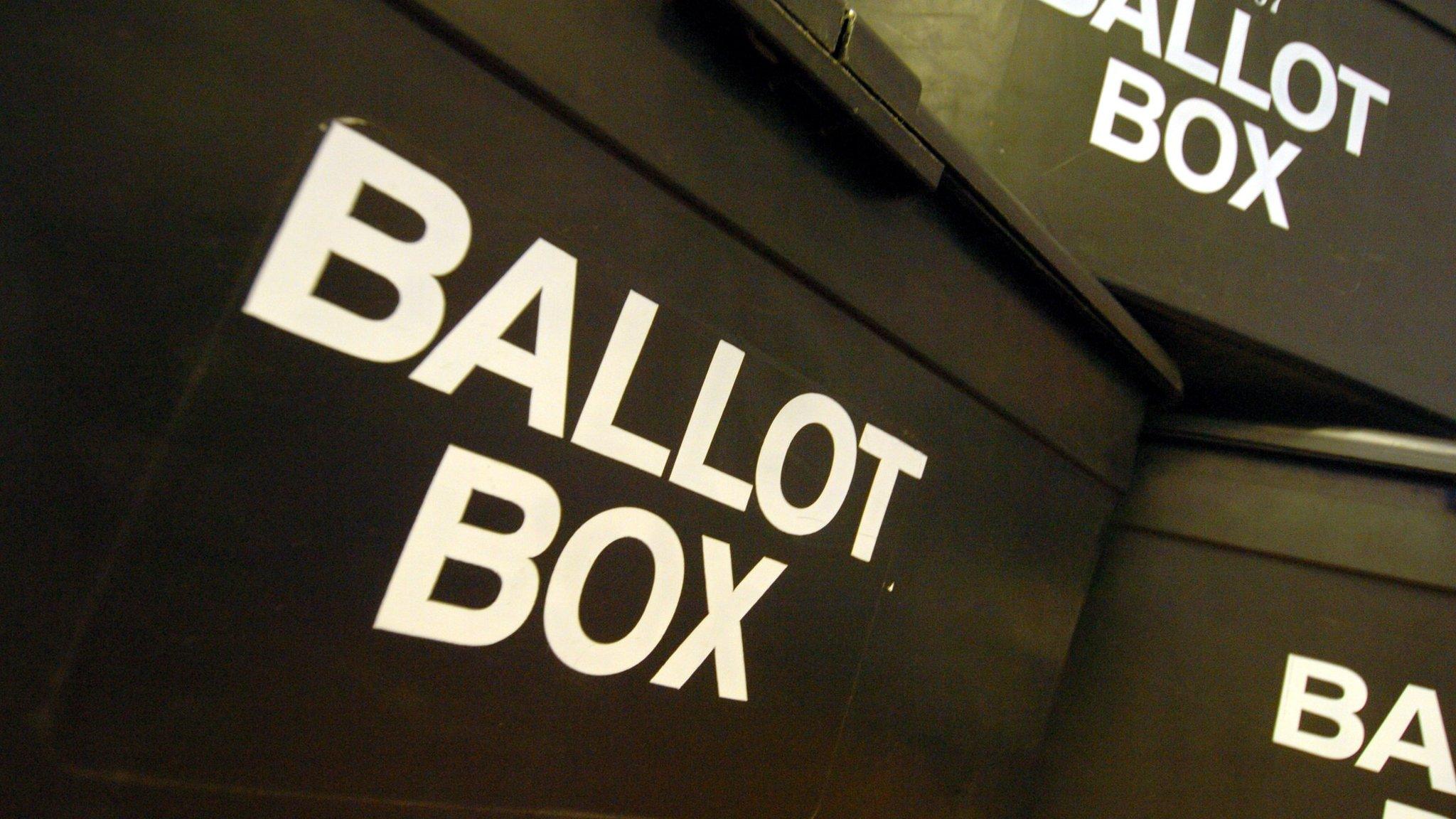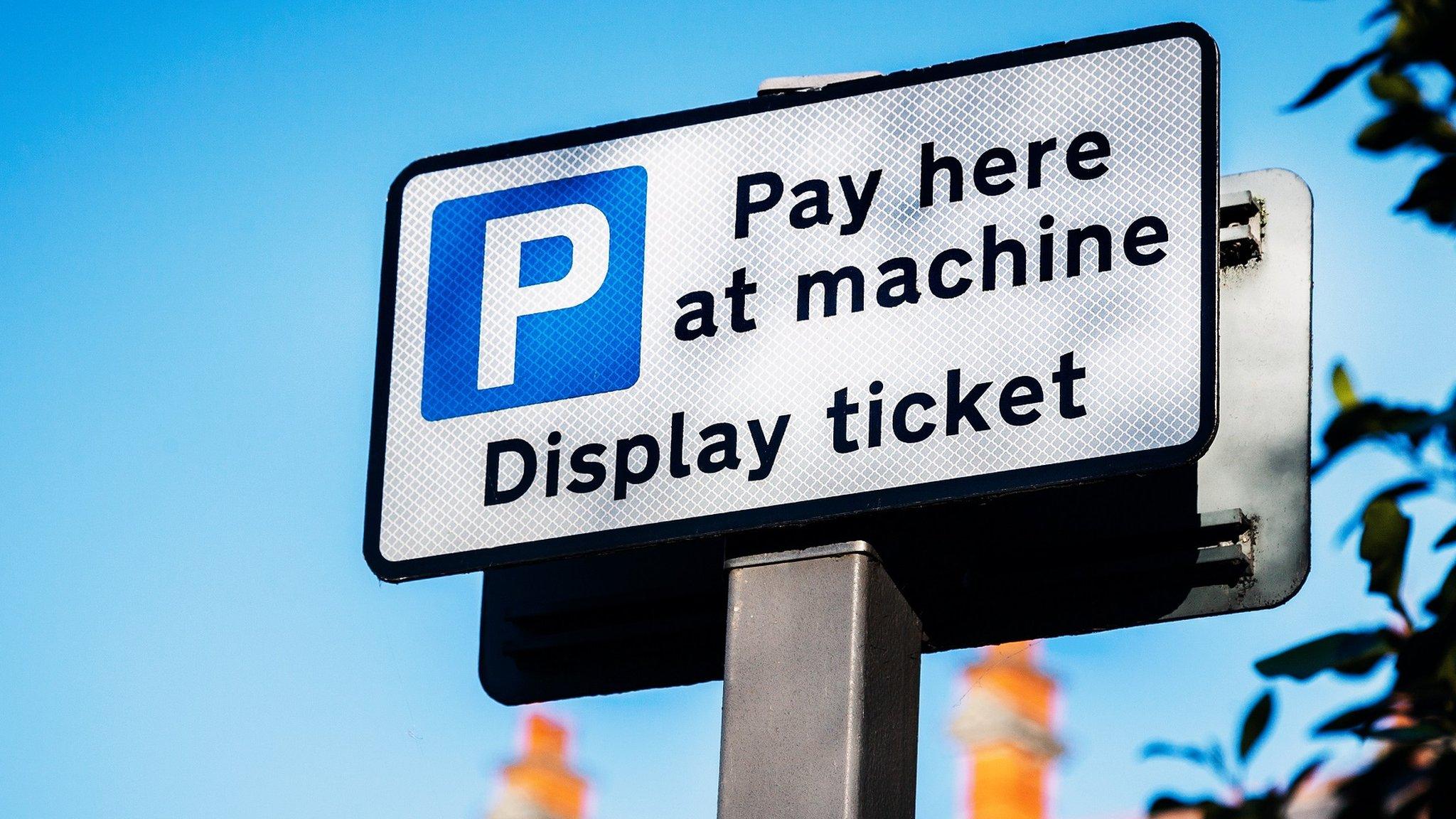Wiltshire to crack down on fly-tipping amid hundreds of cases
- Published
Fly tipping: 200 reports in Wiltshire every month
A council has warned customers could also be liable for large fines if they use unlicensed people to remove their waste.
Wiltshire Council said it received some 200 reports per month about fly-tipping and was cracking down on it.
With the help of new covert cameras it was able to prosecute more people flouting the law, it said.
The county's many rural roads emboldened fly-tippers who believed themselves to be unobserved, it said.
LISTEN: BBC Radio Wiltshire joins the fly-tipping enforcement team
The council's head of highways operations Adrian Hampton said: "It's out of sight out of mind for these depositors."
By sifting through the dumped waste, investigators were often able to find which home the waste originated from he added, and could then issue fines.

Adrian Hampton, the council's head of highways operations, said detective work and new covert cameras were helping to tackle the problem
He said his team had received 200 reports about fly-tipping each month since the council had ploughed more resources into tackling the issue.
It has recruited more investigators and installed new covert cameras with 8mm lenses that are small enough to be hidden out of sight in trees and bushes.
Wiltshire Council's enforcement manager Peter White said: "They can be installed really quickly, the lifespan on them is really good, and they'll trigger if someone is fly tipping in that particular area."

The council has encouraged people to report fly-tipping
According to the council, in November, an organised gang was convicted of dumping and burning waste after being caught by the new cameras in Wiltshire.
Mr Hampton said sometimes old fashioned detective work, namely "finding evidence within rubbish and tracking that back to the producer and carrier," was still the best technique for catching those responsible.
Wiltshire Council said legitimate waste disposal traders had valid permits and issued customers with an official Waste Transfer Document.

Follow BBC West on Facebook, external, Twitter, external and Instagram, external. Send your story ideas to: bristol@bbc.co.uk , external
Related topics
- Published1 May 2022

- Published16 February 2022
